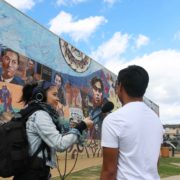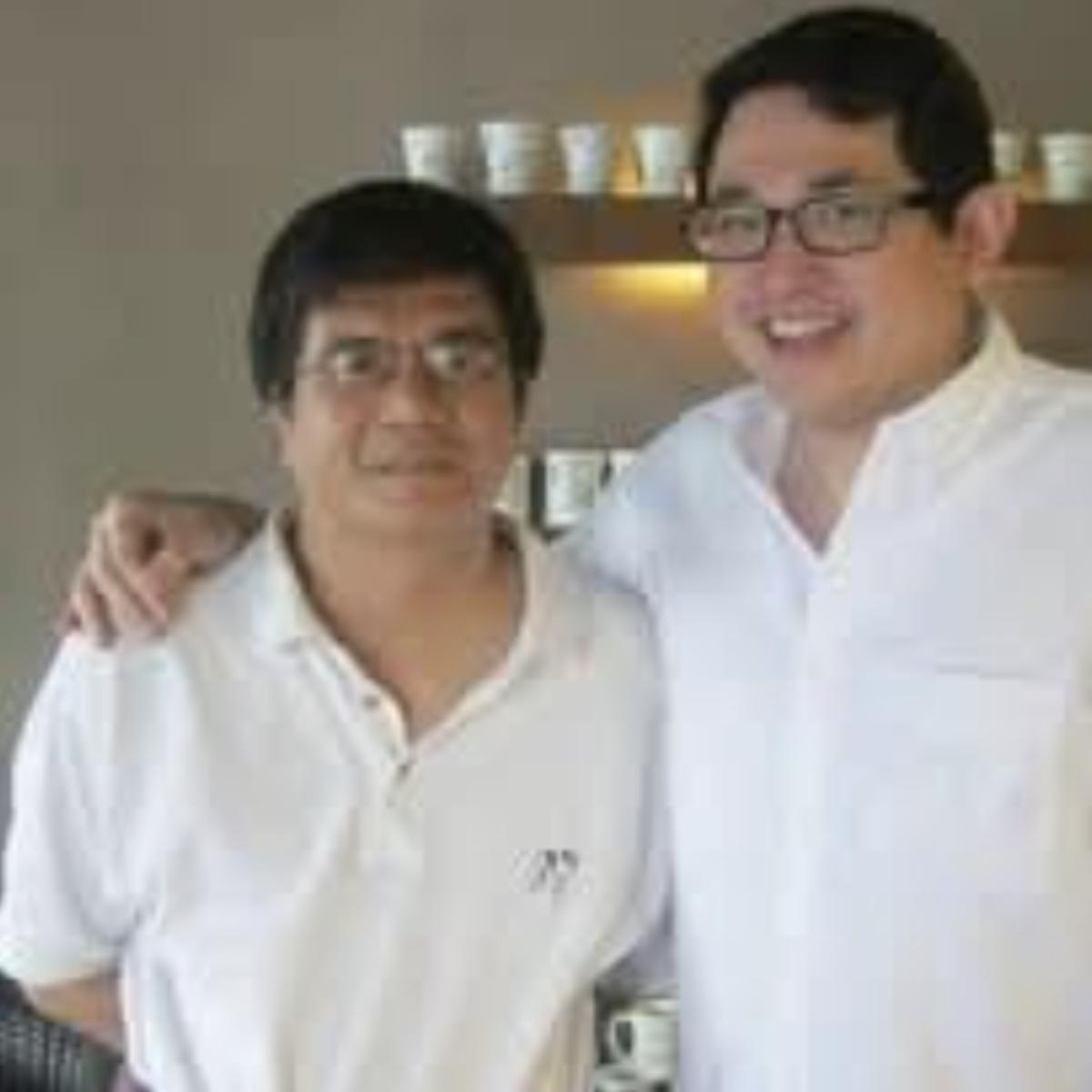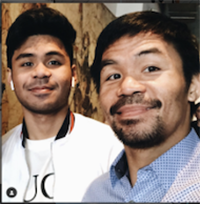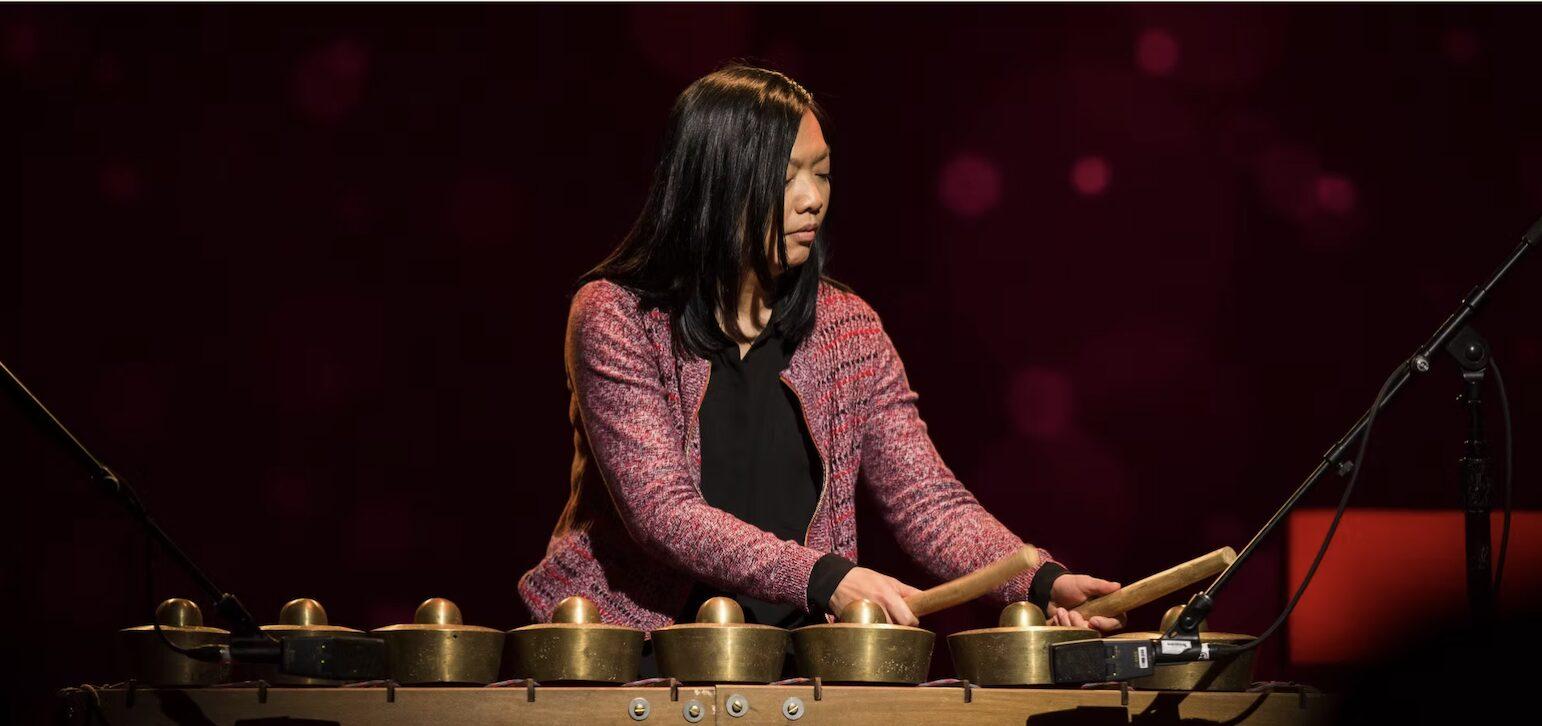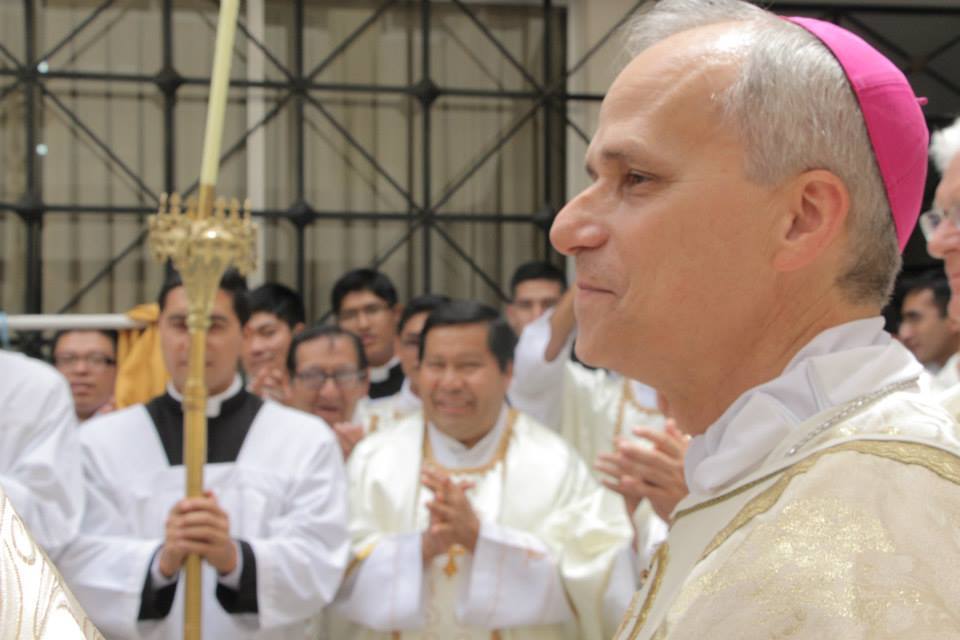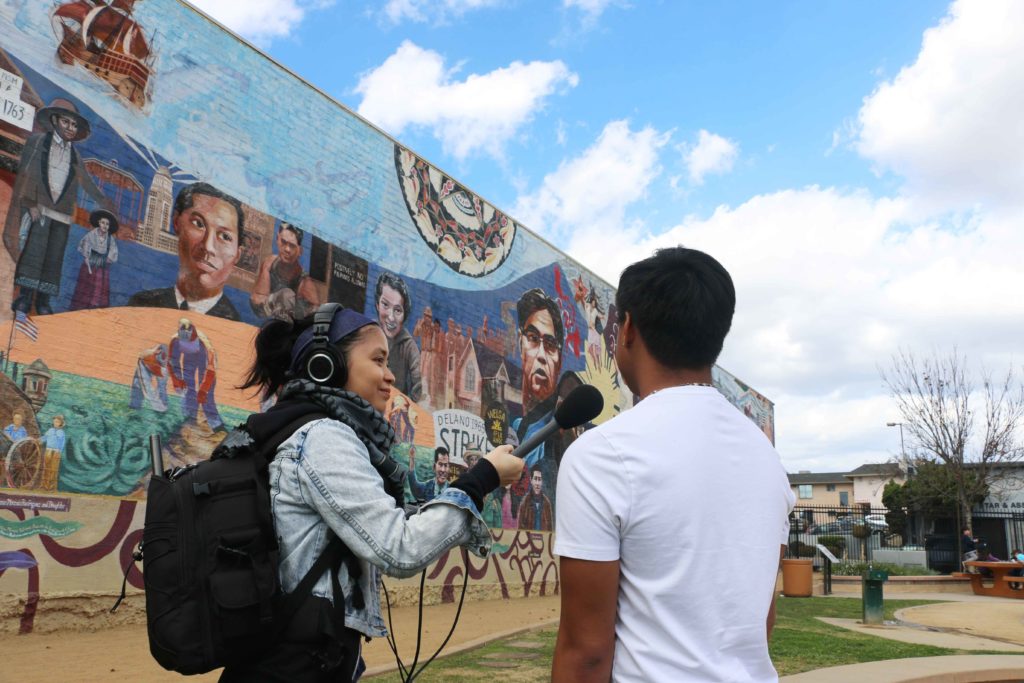
Like most “1.5 generation” Filipino Americans, Paola Mardo learned about American life through pop culture, particularly by watching teen movies and romantic comedies.
Though she was born in Los Angeles, she lived and grew up in Manila and Kuala Lumpur before moving to the Bay Area suburb of San Ramon at the age of 15, which came as a “culture shock.”
“The teen comedies made me think that was how life was like in America. In the movies, you don’t see how diverse America actually is. It brought a lot of confusing feelings as I was finding it hard to find my place,” Mardo recalled in an interview with the Asian Journal.
Fast forward through her formative years, the lack of representation in mainstream storytelling continued to stick with her — from deciding to study film and theatre production and Asian American studies at UC Santa Barbara to working five years at Sony Pictures in the international publicity department and then marketing at Annapurna Pictures.
“I started to think, ‘Okay, I moved to LA to do something for myself, something that’s creative’ and also I realized I wanted to do something meaningful,” Mardo said. “So I started a podcast.”
This was back in 2015, a year after “Serial,” a podcast under “This American Life,” was released and arguably jumpstarted this audio interest and trend we’ve been experiencing over the last five years.
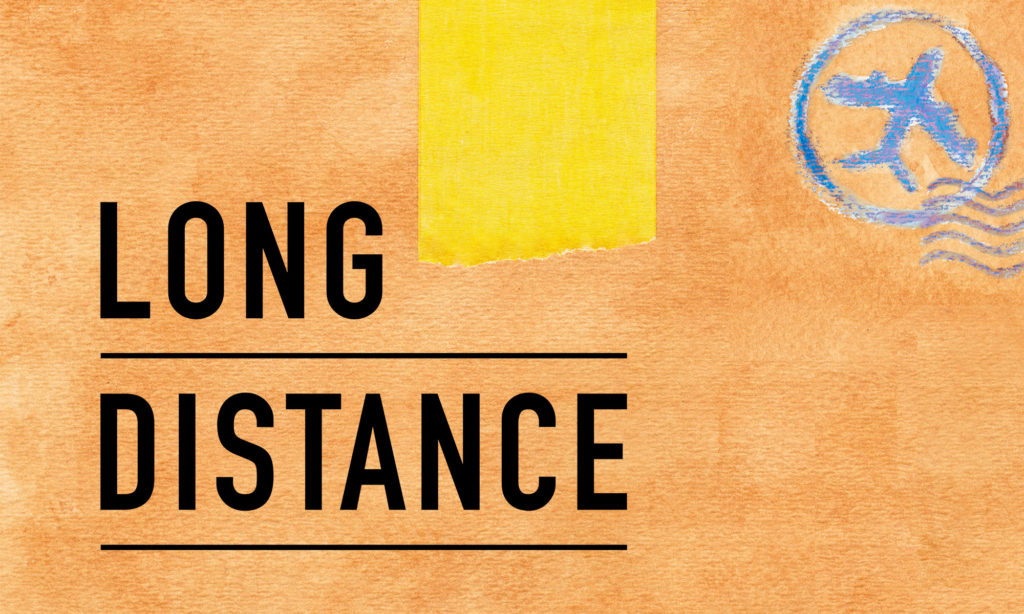
Today, after several iterations, Mardo is the creator, producer and host of “Long Distance,” a year-old monthly podcast that tells stories of the Filipino diaspora. She does this alongside her partner and co-producer Patrick Epino, who also lends his voice acting chops to reenact scenarios to fill in gaps where archival tapes are not available.
“The Filipino experience is transnational, multicultural, and that’s what I want to talk about,” says Mardo.
The first season wrapped up earlier this spring, with six episodes taking listeners from Little Manila in Stockton to an introspective as to why 2018 was a breakout year for Filipinos across industries.
“Was it just me or was 2018 Hella Filipino?” Mardo asks in the third episode, featuring interviews with Bay Area-rapper Ruby Ibarra, the Pinays behind Historic Filipinotown gin bar Genever, and “Bitter Melon” director H.P. Mendoza.
She continues, “You’d have to be living under a rock if you didn’t hear or see or smell or taste anything Filipino this year.”
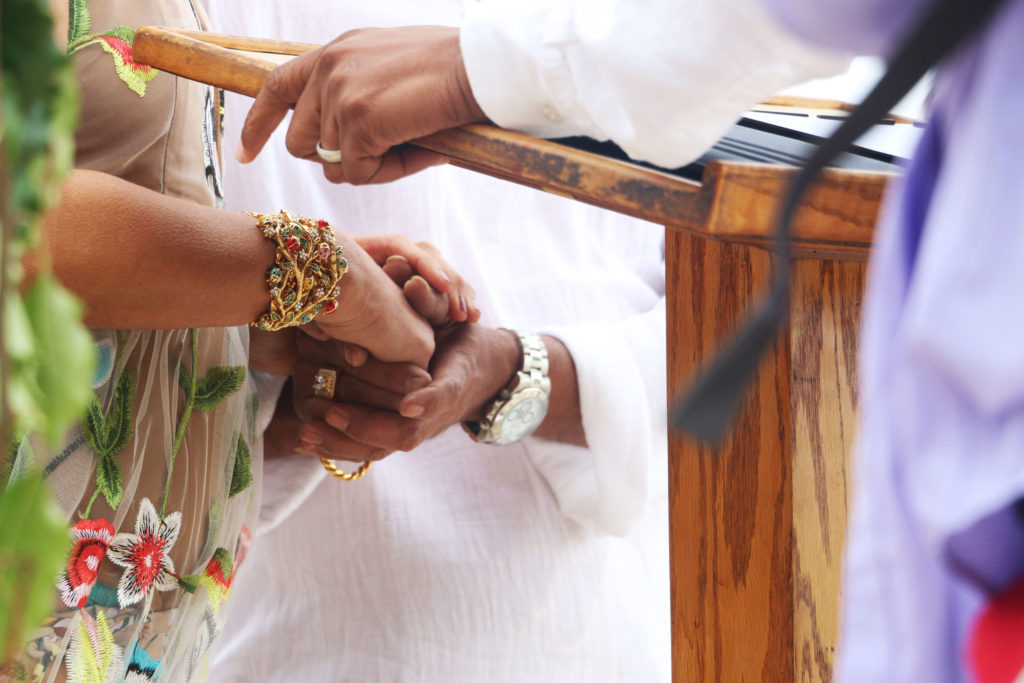
One of the most beloved episodes of the season was the fifth one entitled, “Long Distance Love Story,” a story following an undocumented Filipino couple who reunite 40 years later in Los Angeles after being ex-high school sweethearts.
“The love story of Terry and Jun is an epic one, like the kind you see in the movies or teleseryes,” Mardo narrates.
Like the movies Mardo savored, it’s a story of fate and love, but doesn’t shy away from capturing the hardships many overseas Filipino workers face as caregivers and laborers on top of being undocumented in the current political climate.
And that’s exactly what “Long Distance” tries to encapsulate: the Filipino story is not solely about the triumphant moments nor about sweeping the hardships under the rug.
“The show is about stories in the Filipino diaspora and they’re not just going to be all the good stuff. I want to do stories that are real, which I think is missing in mainstream media and honestly, in the Filipino community,” Mardo said. “We’ll hear about the Miss Universe win or so and so is a Filipino actor starring in a Hollywood movie. That’s great, but there are so many other things happening. The Filipino experience is transnational, multicultural, and that’s what I want to talk about.”
Capturing the diaspora narrative
“Long Distance” wasn’t the first podcast idea Mardo had, however. Maybe it would be about movie marketing, given her professional work in that industry. Then it came to life through “F This Weekly” about women of color in the arts of entertainment, which had one season and 27 episodes.
“Podcasting is so intimate and it can just be you with a mic in a closet and that’s it,” she described. “It is a simple production but it does take work to put it all together.”
It was around the same time she was accepted to the arts journalism master’s program USC Annenberg as a Sony Pictures Entertainment Fellow. She created her own syllabus on podcast production, which she said served as the basis of classes the university offered after she graduated in 2017. While studying, Mardo had her first endeavor in the radio world as an intern for KPCC’s arts, culture and entertainment show “The Frame,” but her audio recording and production expertise is self-taught for the most part.
On the side, Mardo began recording stories around LA’s Historic Filipinotown and pitched them to Third Coast’s residency workshop during their annual audio festival, like the “Sundance of Radio.”
“When I was at the residency, they were like, ‘I want to hear what it was like in HiFi.’ I didn’t know what it was like 50 years ago. How do I do that? That’s where journalism school helped because it made me think of creative ways to tell stories, especially for stuff when you don’t have tapes or historical archives,” she explained.
Though the first six episodes were U.S.-based because of access, Mardo promises more of a global perspective in episodes to come. Already, it has reached listeners beyond the United States in places like Saudi Arabia or Brazil, for example, and has received feedback from other Filipinos who are stunned by how popular Filipino food is in America.
The episodes of “Long Distance” are around 40 minutes, but the amount of work that goes into each one is arduous, from conceptualizing a story, researching, pre-interviews, writing the script, actual interviews and editing.
What makes this podcast stand out is the crisp and seamless weaving in of Mardo and Epino’s narration and interviews that make the storytelling engaging. The episodes seem to go by quickly, but you are left informed and impacted.
“I like hearing our voices and letting these Filipino folks talk. I do narrate and there is a point of view from my lens that these stories are told through but I interview people for them and let them speak because I want them to speak. Putting them in this medium allows that,” Mardo said.
This is why a podcast is the best way to tell the stories Mardo chooses — they’re digital, accessible and free; though it covers long distances, it makes the Filipino experience not so isolating.
“Being expressive and proud of our Filipino American identity is important, but I felt that I would be doing a disservice if I kept the show to just that because of what I know about my own experience and what I know about the Filipinos’ experiences being outside the United States,” she said. “It’s global. You can say that about a lot of cultures but I think our Filipino experience specifically, we are one of the largest diaspora populations in the world.”
Sustainable storytelling
“That’s the thing about making something for the Filipino community, I find it so important, but in the larger skew of things, it feels like it’s not important enough,” Mardo muses.
In the past year, “Long Distance” has gained a steady following, and was included in The Bello Collective’s 100 ‘outstanding podcasts’ of 2018 and among YES! Magazine’s recommendation as a podcast that doesn’t ‘whitewash race.’
One of the proudest moments Mardo notes was their acceptance into a competitive podcast program.
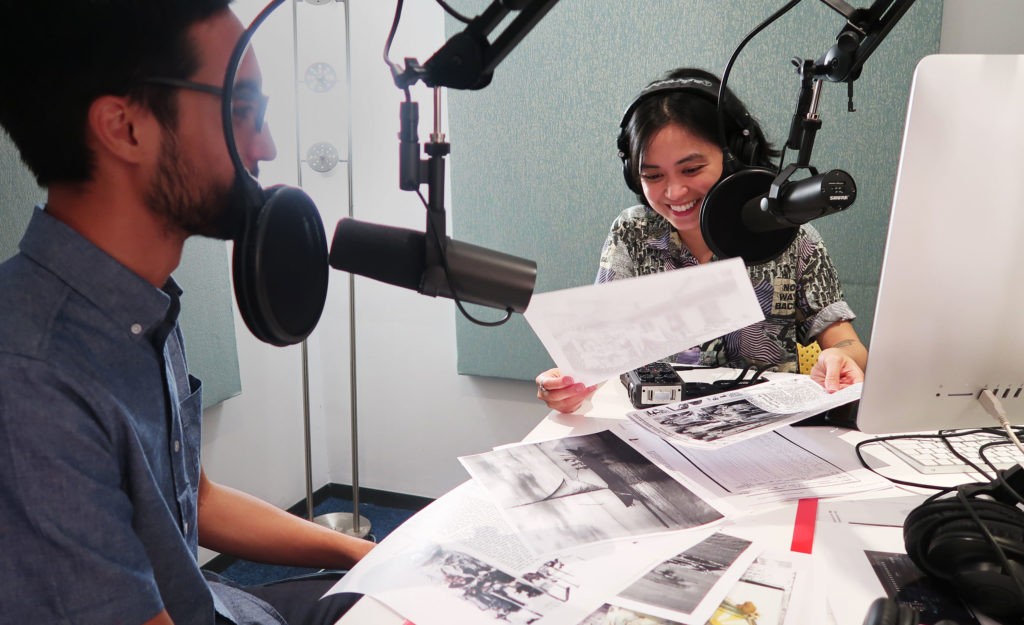
Out of 6,000 applicants from over 100 countries, “Long Distance” was one of six podcasts chosen in January to participate in the inaugural Google Podcasts creator program with Public Radio Exchange (PRX). Under the 20-week program, the creators received a one-week training crash course in Boston as well as seed funding to grow their series.
A main takeaway from the program, Mardo said, is how to transform “Long Distance” into a production company and sustainable business.
As of June this year, there are more than 750,000 podcast shows and over 30 million episodes. This comes at a time when traditional media players are crossing over to podcasting and hefty investments are being put into production — whether it’s Spotify acquiring podcast creators Gimlet and Anchor or Luminary, a podcasting production company that received $100 million in funding and offers a premium option for $7.99 per month through its app.
“People ask me if I’d work with a network. If there was a network it would work for, then yes, but pitching a show about Filipino stories has been a challenge. That’s the thing about making something for the Filipino community, I find it so important, but in the larger skew of things, it feels like it’s not important enough,” she said.
Despite podcasts seemingly going the corporate giant route, podcast listeners have become more diverse in the last 10 years, with 4% of listeners being Asian, based 2018 data from Edison Research. There are around 300 Asian American and Pacific Islander-created podcasts, according to Asian American Podcasters; in the Fil-Am community alone, there is a handful to listen to, whether they’re about the nuances of Fil-Am life or Filipina entrepreneurs.
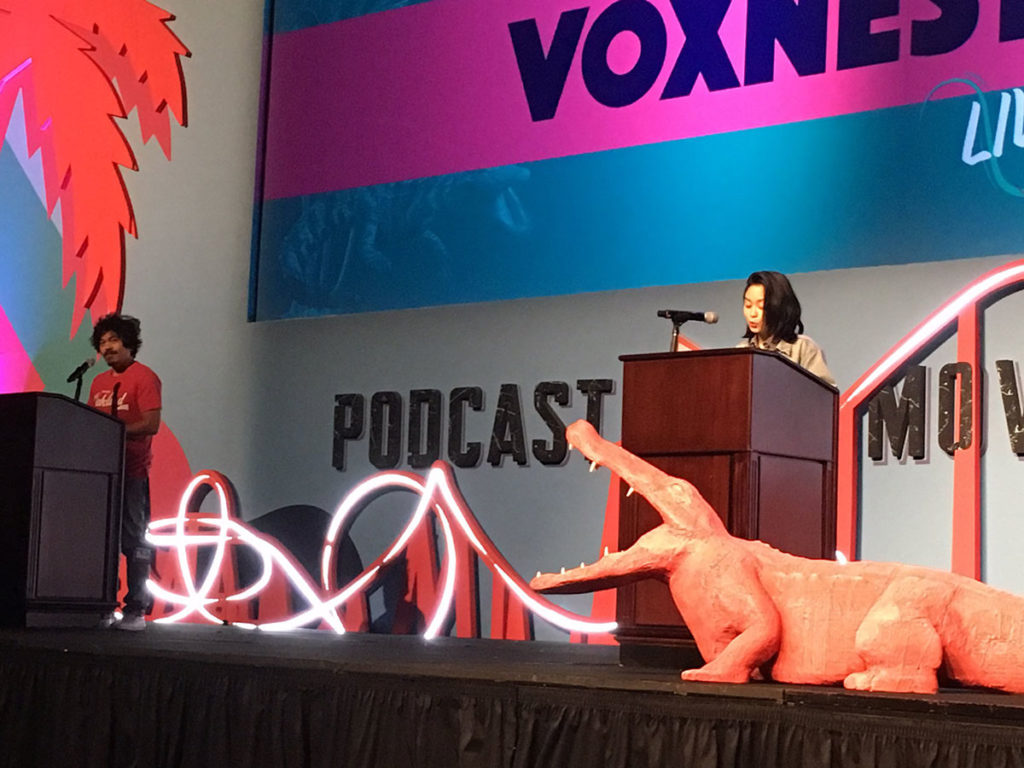
“I don’t think people know that Filipinos in general, we have a really rich audio/radio storytelling history. I learned this recently after my dad told me he grew up listening to these radio dramas that his mom, my grandma, would listen to in the afternoons while they were doing housework,” Mardo said. “To me, that’s fascinating but that’s what’s exciting about podcasts because we can bring some of that back.”
Though Mardo has invested her own resources into developing the two seasons and works on freelance projects outside of the podcast, she’s turning to the community for support either by contributing to the Patreon, sponsorships, leaving a review, or sharing it on social media.
She maintains that it should still be “independent as possible,” so don’t expect any mattress or e-newsletter ads in the middle of the show anytime soon.
Leading up to the second season, it’s been a busy few months for Mardo and Epino, as they have been moderating panels and speaking at podcast festivals, such as Werk It!, the International Documentary Association and Wondery’s Podcast Day and Podcast Movement.
“I want ‘Long Distance’ to be more than a podcast — a community — and it’s slowly starting to be that on Instagram as a way to share stories,” Mardo said. ‘It doesn’t matter if it’s a story of accomplishment or a story about being undocumented. They’re all important and we want the community to know that.”
Long Distance can be streamed on platforms like Apple, Spotify or its site https://www.longdistanceradio.com.


